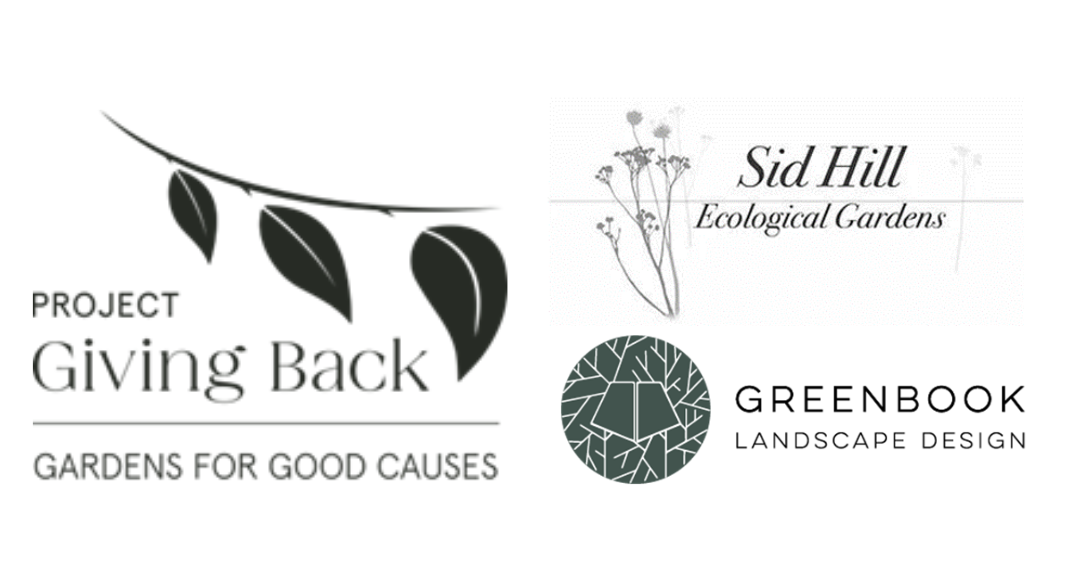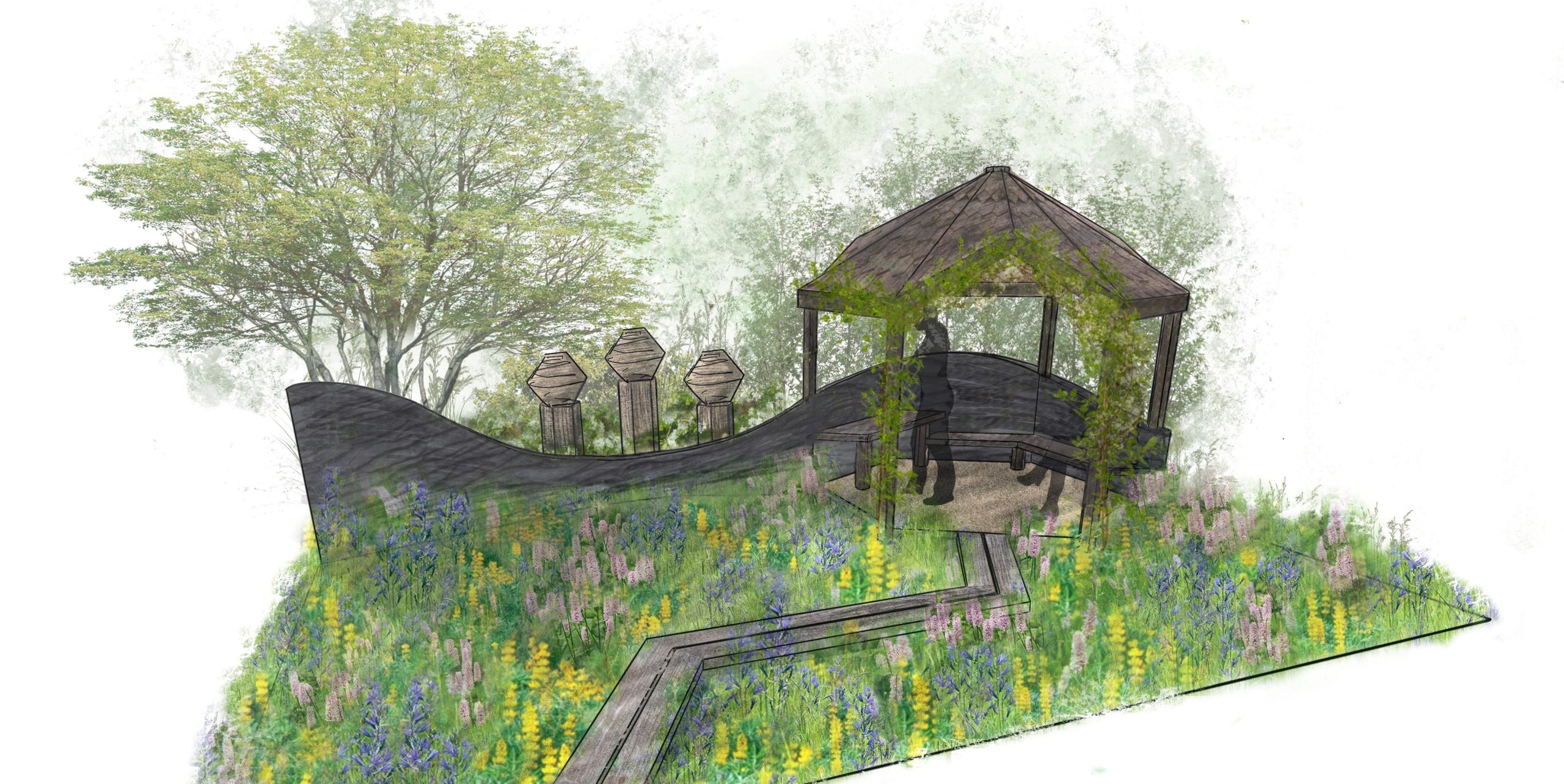The Bowel Research UK Microbiome Garden explores the link between a healthy landscape, a healthy gut and a healthy mind
The Bowel Research UK Microbiome Garden draws inspiration from medical and botanical research, exploring the fascinating connection between a healthy landscape and soil, a healthy gut, and a healthy mind. It aims to inspire people to rewild their diets, gardens and their relationship with the land.
The garden, which is in the ‘All About Plants’ category, is sponsored by Project Giving Back, the unique grant-giving charity that funds gardens for good causes at the RHS Chelsea Flower Show.
Created by talented young garden designers and RHS Chelsea debutants Sid Hill and Chris Hull, The Bowel Research UK Microbiome Garden includes an edible meadow focuses on the connection between the ecological health of a landscape and soil and the health of our own gut flora. Informed by ancient cultures that have tended and harvested the landscape around them, Sid and Chris have designed a beautiful and diverse edible meadow from the environment around them that harnesses edible plants to improve both physical and mental health, using the gut microbiome as a catalyst.
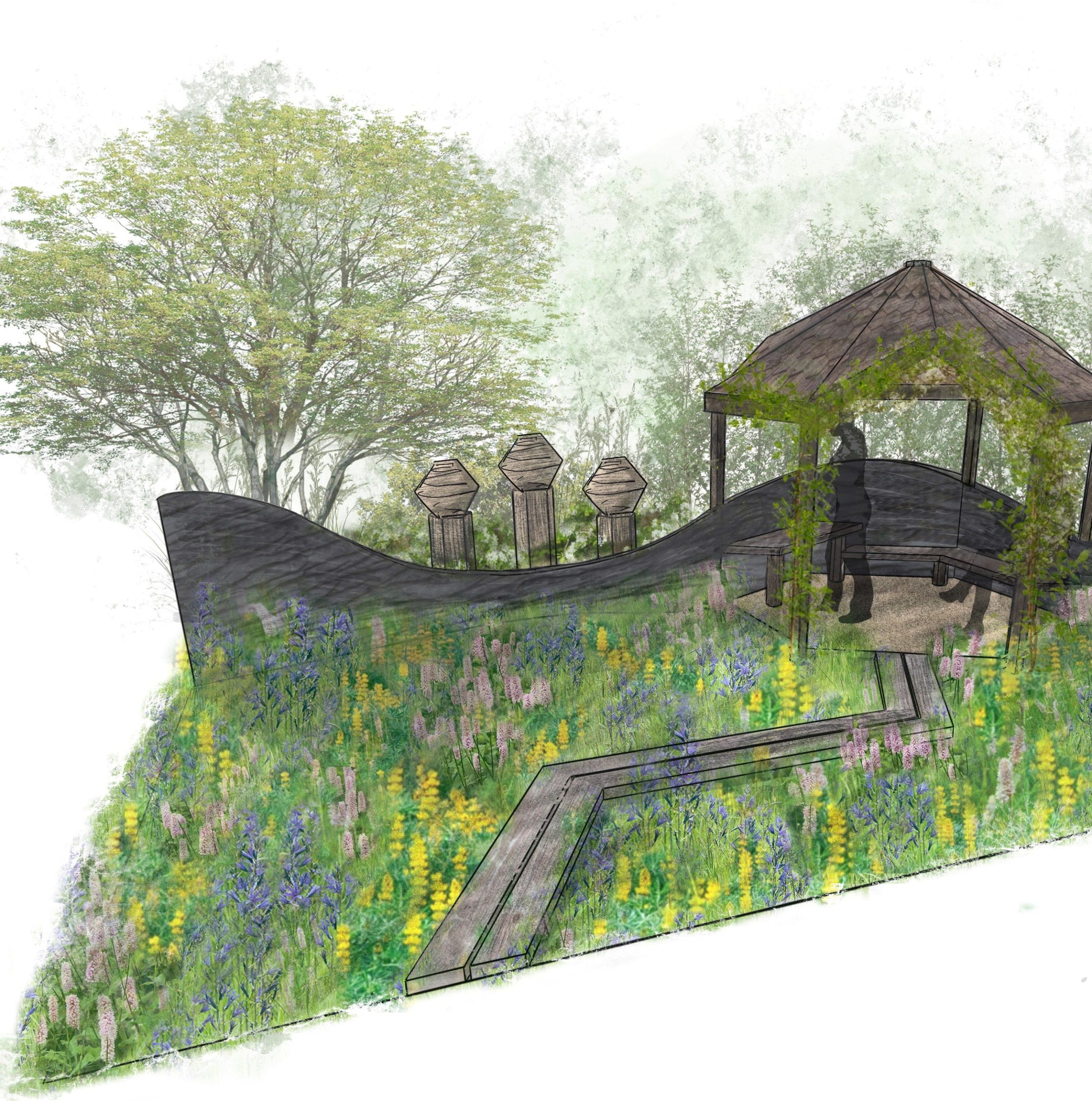
The planting scheme takes inspiration from wild meadows, with a mix of ornamental grasses and edible perennials, offering a harvest for both people and wildlife. This pioneering ‘edible meadow’ combines a selection of feature plants including Persicaria bistorta, Camassia and Lupin luteus, to create a rich tapestry of yellows, blues and pinks. Although this trio of beautiful plants are commonly grown in gardens across the UK, few people know that they are great food crops too and they could offer a myriad of gut health benefits.
Sid Hill, who has 15 years of experience of managing a landscape business and holds a 1st Class Honours degree in Ethnobotany & Landscape Design from the Eden Project, said: “Current science indicates that cultivating plants in ecologically rich environments fosters diverse microbial communities. Including these plants in our diet facilitates the transfer of beneficial microbes to our digestive system and human microbiome, promoting a healthy bowel and overall physical well-being.”
Chris Hull, who has over 16 years’ experience working in horticulture and garden design and who is also a regular presenter on the hit BBC TV show Garden Rescue, said: “Studies show that mental health issues such as anxiety and depression could be prevented and treated by creating a healthy balance of gut flora. It’s no secret that just being in green space can improve your mental well-being, but what’s better than using beautiful, ecologically rich plants which have pro- and prebiotic benefits too.”
Bowel Research UK, which supports early career medical researchers, are delighted to be collaborating with designers who are creating their first garden for RHS Chelsea Flower Show.
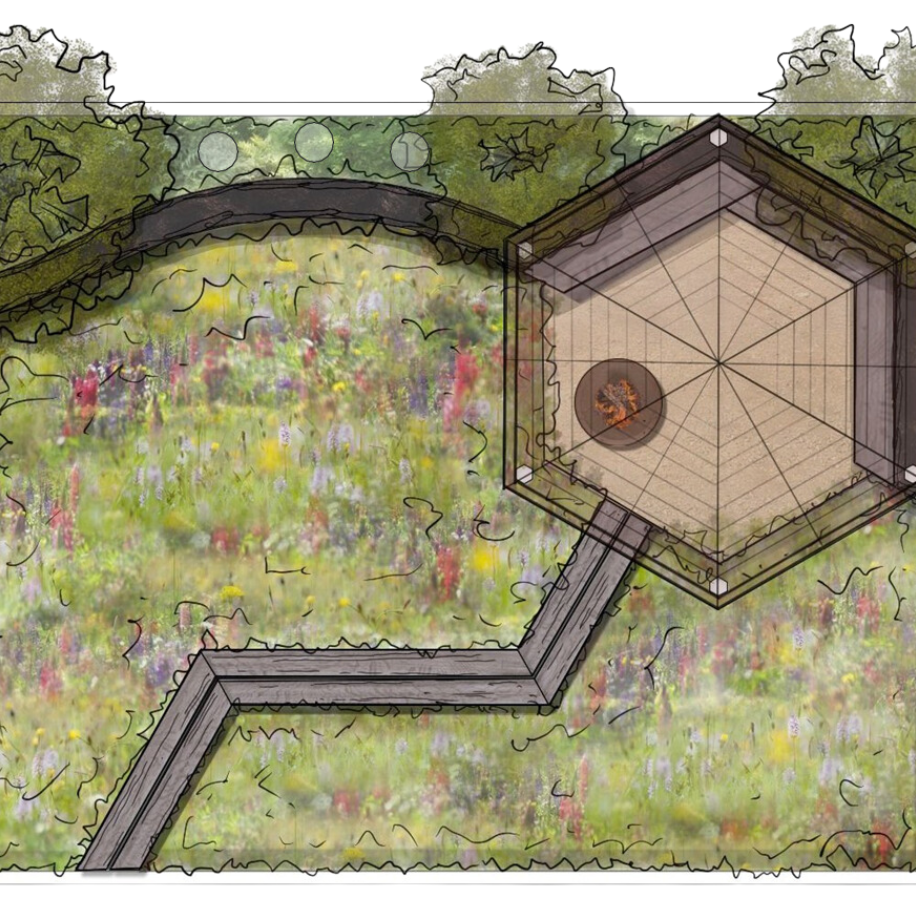
Lynn Dunne, Chief Executive Officer of Bowel Research UK, said: “We are thrilled to be hosting a garden at the Chelsea Flower Show, which is a first for our charity and a big honour.
“Our Chelsea garden has a direct link to the research we fund into the gut microbiome, including a study by the research team at Imperial College that opens up the very exciting prospect of being able to offer precision medicine for bowel cancer patients around their individual gut microbiota. Moreover, there is so much more to discover about the effects of the microbiome on bowel disease outcomes which is why we are keen to support more research projects in this field.”
Following RHS Chelsea Flower Show, the garden will be relocated to the Apricot Centre in Totnes, Devon, which runs a sustainable farm helping children and families understand the fundamental link between the wellbeing of the soil, food and habitat, and the mental and physical health of the people who work in and around its farm.
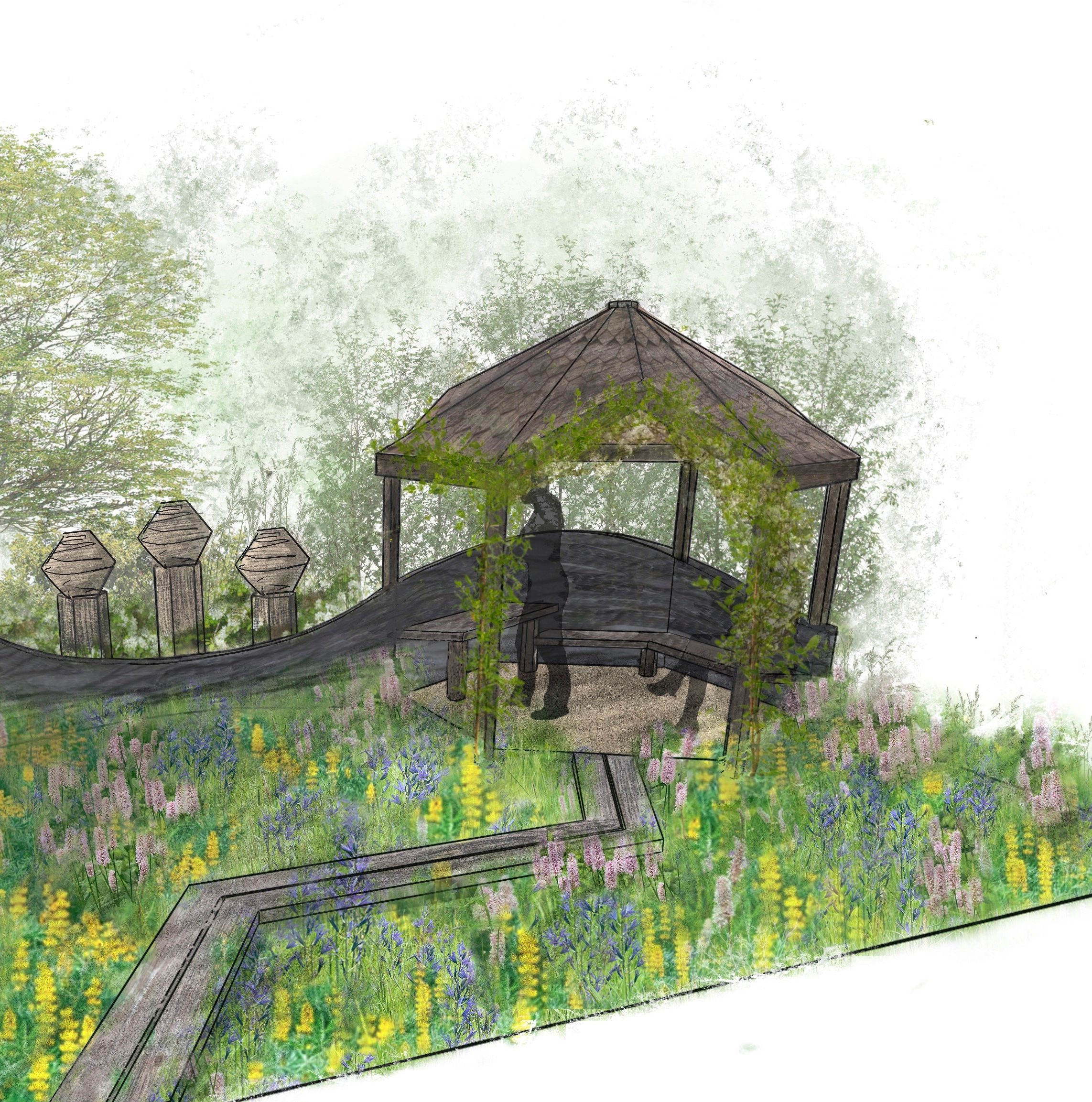
Your Microbiome
The microbiome is the collection of bacteria, fungi, viruses, and their genes, that naturally live on our bodies and inside us. Although these so small that they require a microscope to see them, they contribute in big ways to human health, bowel health, mental health and overall wellness.
They protect us against infections, help our immune system develop, take care of our mind and body and enable us to digest food to produce energy.
Some microbes alter environmental substances in ways that make them more toxic, while others act as a buffer and make toxins less harmful.
Because the microbiome is a key interface between the body and the environment, these microbes can affect health in many ways. Research has shown that the gut microbiome has roles in many different conditions , but this also means it offers new ways to treat diseases.
We can get these microbes from the food we eat, the plants we grow, and the soil we grow them in.
The key questions
Research has yielded tremendous insight into the links between the gut microbiome, environmental exposures, and human health. Yet big questions remain and these include:
- What are the links between what we eat, the soil and plants and our overall health?
- What information about the microbiome should be collected to understand how the microbiome responds to environmental exposures?
- How can we alter the gut microbiome to prevent and treat bowel disease?
By shining a spotlight on this, we hope to find the answers to these questions, and by funding research we will get those answers quicker.
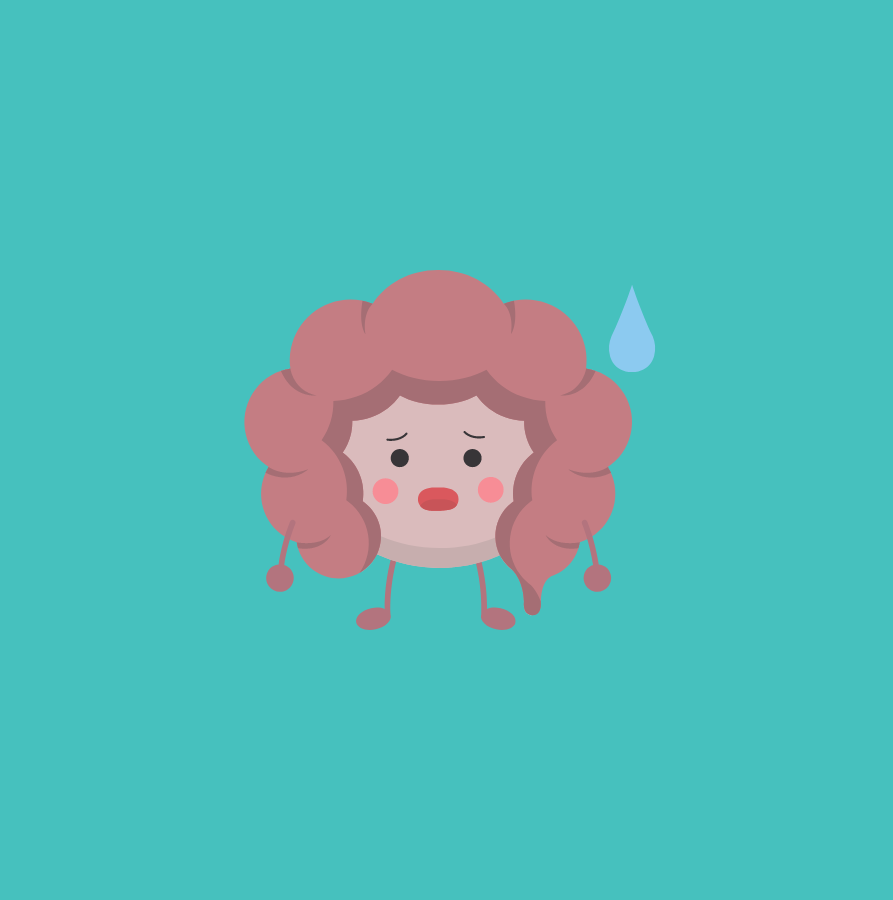
Learn more:
Thank you to our partners:
